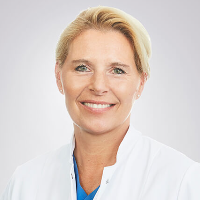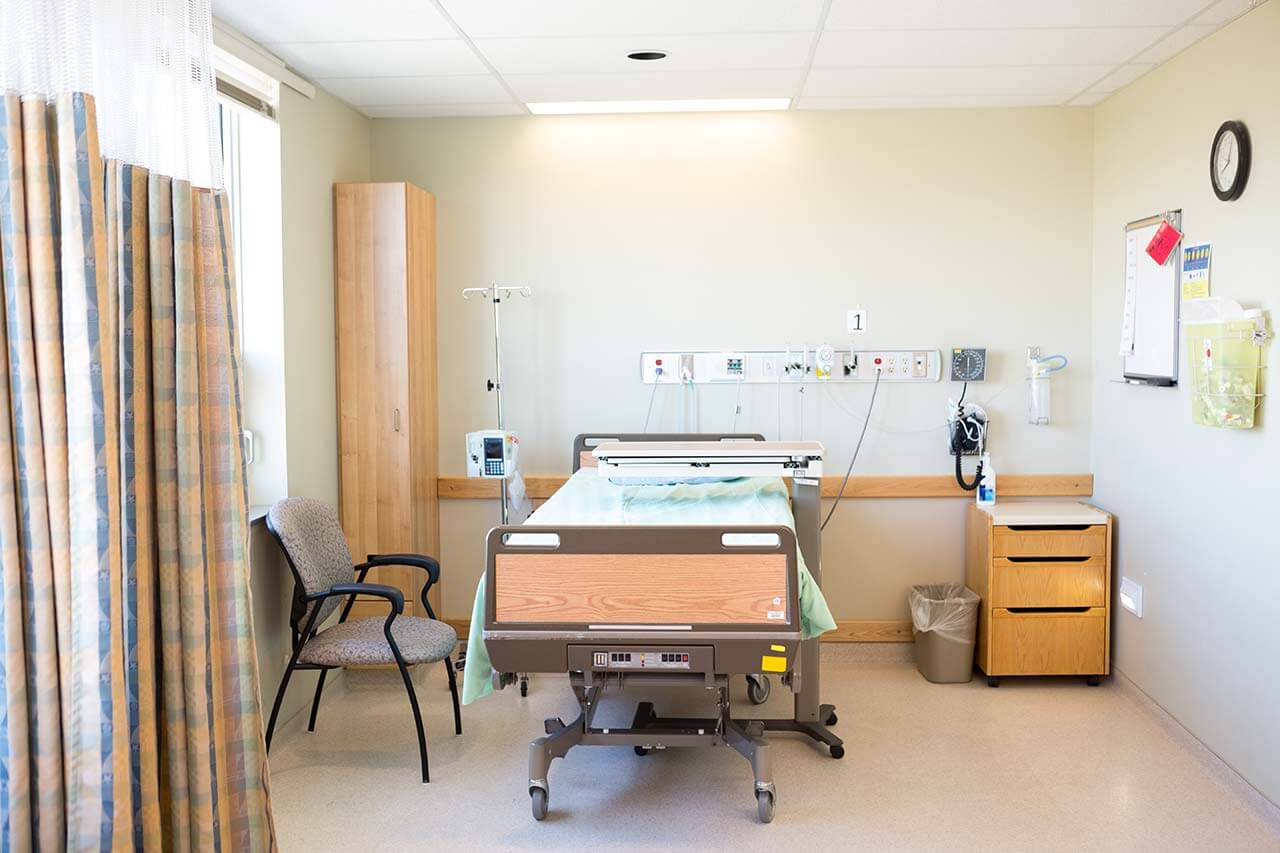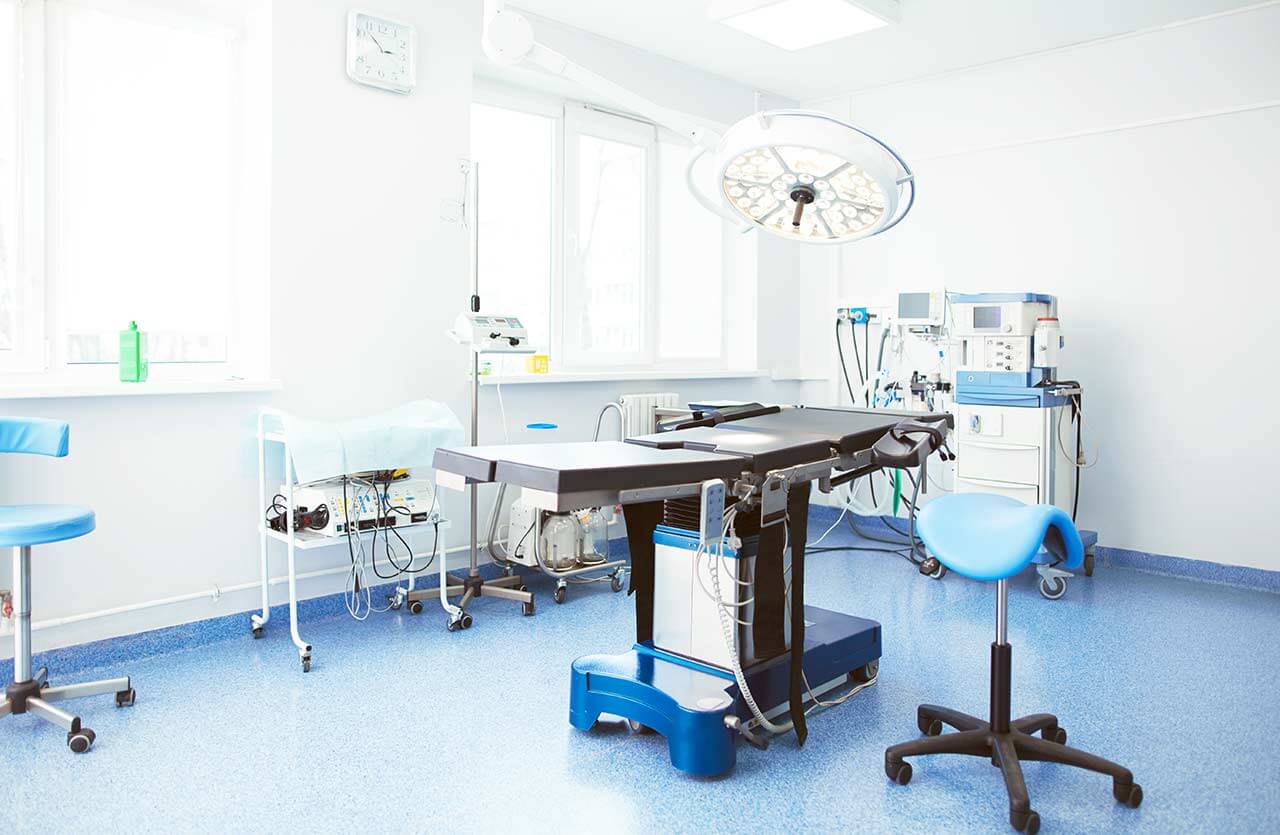
:في البرنامج ما يلي
- التعريف بالمستشفى
- التاريخ الطبي
- مراجعة السجلات الطبية
- الفحص السريري
- الفحص المخبري
- فحص دم شامل
- تحليل البول العام:
- التحليل الكيميائي الحيوي للدم
- علامات الورم(AFP, CEA, СА-19-9)
- مؤشرات الالتهاب (CRP, ESR)
- مؤشرات تخثر الدم
- التصوير بالموجات فوق الصوتية للبطن
- تنظير القولون (مع اخذ خزعة إذا أشار 2500 يورو)
- التصوير الطبقي المحوري| الرنين المغناطيسي لأعضاء البطن (وفقًا للإشارات ، بتكلفة إضافية قدرها 650/1200 يورو)
- خدمات التمريض
- المشورة بشأن التغذية
- مؤتمر الأورام متعدد التخصصات
- استشارة المتخصصين من المجالات ذات الصلة (الجراح ، أخصائي الأورام والأشعة)
- المعالجة من قبل كبير الاطباء و كبار الاخصائيين في المستشفى
- شرح تفاصيل خطة العلاج الفردية
الوثائق اللازمة
- التقارير الطبية ذات الصلة
- تصوير مقطعي محوسب/تصوير بالرنين المغناطيسي (لم يمضِ عليه أكثر من 3 أشهر)
- نتائج الخزعة (إن وجدت)
الخدمات
يمكنك أيضا حجز
 BookingHealth يبدأ السعر من:
BookingHealth يبدأ السعر من:
عن القسم
The Department of Gastroenterology at the Schlosspark Hospital Berlin provides the full range of diagnostic and therapeutic services to patients with gastrointestinal diseases. The main focus of the department's clinical activities is endoscopic therapeutic procedures. For this purpose, modern equipment and comfortable treatment rooms are available here. The department's team of doctors has the necessary resources to provide emergency care to patients with acute gastroenterological diseases. The department's specialists, in cooperation with surgeons, oncologists, radiologists, and radiation therapists, successfully diagnose and treat cancers. The department also admits patients with type 1 and type 2 diabetes mellitus. Most diagnostic and therapeutic procedures are performed on an outpatient basis, which is an important advantage for patients. The department's medical team consists of experienced doctors and nursing staff, for whom it is important that each patient receives effective treatment that meets his individual needs and wishes. The department is headed by Dr. med. Rebecca Tschöpe.
Many patients seek medical help from the department with suspected malignant gastrointestinal tumors, such as stomach, small and large intestinal, esophageal, biliary tract, and pancreatic neoplasms. Such patients are prescribed a complex of diagnostic examinations, including laboratory tests, hardware and imaging tests, and functional diagnostics. If the diagnostic results confirm the doctor’s fears about the oncological process in the patient’s body, the clinical case is considered at the weekly tumor board with the participation of gastroenterologists, oncologists, surgeons, radiation therapists, and radiologists. The task of the interdisciplinary board is to cooperatively assess the patient's clinical case and develop the optimal course of treatment for them, which will be effective but at the same time as sparing as possible. Tumor removal surgery is often required to achieve a successful outcome. If a malignant neoplasm is detected at an early stage, the department's gastroenterologists perform endoscopic tumor resection. A huge advantage of the endoscopic procedure is its low-traumatic rate because an approach to the pathological focus is provided through natural openings without any incisions, which accelerates the recovery process. In the advanced stages of cancer, the best option for removing the tumor is laparoscopic or open surgery.
The competence of the department's gastroenterologists includes palliative endoscopic procedures for stenotic digestive tumors (in inoperable patients). The treatment aims at relieving pain and restoring the ability to self-feed. During endoscopic stent implantation, a special guidewire is used with a folded stent attached to it. The guidewire is inserted through the oral cavity and, under imaging guidance, directed to the area of narrowing, where the stent is fixed and straightened, thereby restoring the patency of the digestive canal. As a rule, to provide the patient with maximum comfort, the stenting procedure is performed under sedation. In some cases, doctors may also use local anesthesia.
The department regularly performs endoscopic hemostasis procedures for gastrointestinal bleeding. Internal bleeding most often develops due to stomach and duodenal ulcers, gastritis, inflammatory bowel disease, diverticular disease, esophageal varices, stomach and bowel polyps, and gastrointestinal tumors. Gastrointestinal bleeding requires emergency medical attention. Otherwise, it may lead to irreversible consequences and even death. The department's gastroenterologists successfully cope with the treatment of internal bleeding using low-traumatic endoscopic techniques. Prior to the implantation, the specialists carry out examinations to accurately determine the source of bleeding. The gastroenterologist then inserts an endoscope (a thin tube with a video camera and functional attachments) through the oral cavity, directing it to the pathological focus under imaging guidance in real time. Depending on the type of bleeding and its abundance, the optimal type of hemostasis is used, which may be application or injection hemostasis, clipping, ligation, electrocoagulation, argon plasma coagulation, etc.
The department's range of medical services includes:
- Diagnostics
- Ultrasound scans
- Abdominal ultrasound scans (if necessary with contrast enhancement and puncture)
- Elastography for diagnosing gastrointestinal tumors
- Endoscopic examinations
- Gastroscopy
- Colonoscopy
- Capsule endoscopy and balloon-assisted enteroscopy for diagnosing colon
- Endosonography
- Functional diagnostics
- Breath tests for lactose and fructose intolerance
- Esophageal impedance and pH-metry for diagnosing gastroesophageal reflux disease
- High-resolution esophageal manometry for detecting esophageal dysfunction
- Ultrasound scans
- Treatment
- Drug therapy
- Endoscopic procedures
- Removal of benign and malignant tumors in the early stages
- Stent implantation for stenosis caused by benign and malignant gastrointestinal tumors
- Hemostasis for gastrointestinal bleeding
- Stomach and colon polyp removal (polypectomy)
- Percutaneous transhepatic biliary drainage
- Endoscopic retrograde cholangiopancreatography
- Endoscopic treatment for pseudocysts and necrectomy after pancreatitis
- Other diagnostic and treatment methods
السيرة الذاتية
Since May 1, 2020, Dr. med. Rebecca Tschöpe has been heading the Department of Gastroenterology at the Schlosspark Hospital Berlin. The doctor also holds the position of Head Physician in the Department of Gastroenterology, Oncology, Pulmonology and Endocrinology at the Park-Clinic Weissensee Berlin. Of particular interest to Dr. med. Rebecca Tschöpe are endoscopic diagnostic and therapeutic procedures for gastrointestinal diseases.
Photo of the doctor: (c) Schlosspark-Klinik GmbH
معلومات عن المشفى
!وفقًا لمجلة Focus الموثوقة ، تصنف المستشفى الأكاديمي شلوس بارك برلين من أفضل المرافق الطبية في ألمانيا
تقدم المستشفى خدمات طبية عالية الجودة وتتمتع بسمعة ممتازة على الصعيدين الوطني والدولي. تعتمد الممارسة السريرية الناجحة على قاعدة طبية وتقنية المتقدمة، وإمكانية الوصول إلى أحدث طرق العلاج وأكثرها فعالية ، والكفاءة الاستثنائية للعاملين الطبيين الذين يخضعون للاختيار الدقيق
تتكون المستشفى من الناحية الهيكلية من أقسام متخصصة ومراكز ضيقة النطاق مسؤولة عن علاج مجموعة معينة من الأمراض. ومما له أهمية خاصة في طب وجراحة العيون والجراحة التجميلية وأمراض الجهاز الهضمي وأمراض القلب والأعصاب وجراحة المخ والأعصاب وجراحة العظام والكسور
يُظهر أخصائيو المستشفى بانتظام معدلات نجاح عالية للعلاج ، بالإضافة إلى الرعاية عالية الجودة. على الرغم من المعدات الطبية الحديثة وأتمتة العديد من العمليات ، فإن أطباء المستشفى يضعون الموقف الإنساني والمحترم في المركز الأول لكل مريض
من الجدير بالذكر أن المستشفى تقع في حديقة شارلوتنبورغ الخلابة ، بعيدًا عن صخب وضجيج المدينة ، مما يساهم في راحة البال لدى المرضى
depositphotos (c) :الصورة
الإقامة في المشفى
غرف المرضى
يعيش المرضى في المستشفى الأكاديمي شلوس بارك برلين في غرف مريحة ذات ألوان فاتحة. تحتوي كل غرفة على حمام منفصل مع دش ومرحاض. يحتوي الجناح العادي على سرير مريح قابل للتعديل تلقائيًا وطاولة بجانب السرير مع طاولة قابلة للسحب وخزانة ملابس وطاولة وكراسي لاستقبال الزوار وهاتف و التلفاز. يمكن للمستشفى الوصول إلى الإنترنت واي فاي . توفر المستشفى أيضا أجنحة لزيادة الراحة
قائمة المطاعم - وجبات الطعام
يتم تقديم ثلاث قوائم يومياً للمريض والشخص المرافق له. إذا كنت لا تأكل كل الأطعمة لسبب ما ، فسيتم تقديم قائمة فردية لك. يرجى إبلاغ الطاقم الطبي بتفضيلاتك الغذائية قبل بدء العلاج
تفاصيل إضافية
:تشمل غرف المرضى
الشخص المرافق
خلال برنامج المرضى الداخليين ، يمكن للشخص المرافق أن يبقى معك في غرفة أو في فندق من اختيارك
فندق
خلال برنامج العيادات الخارجية ، يمكنك الإقامة في الفندق الذي تختاره. سوف يساعدك مدراؤنا على اختيار الخيار الصحيح




